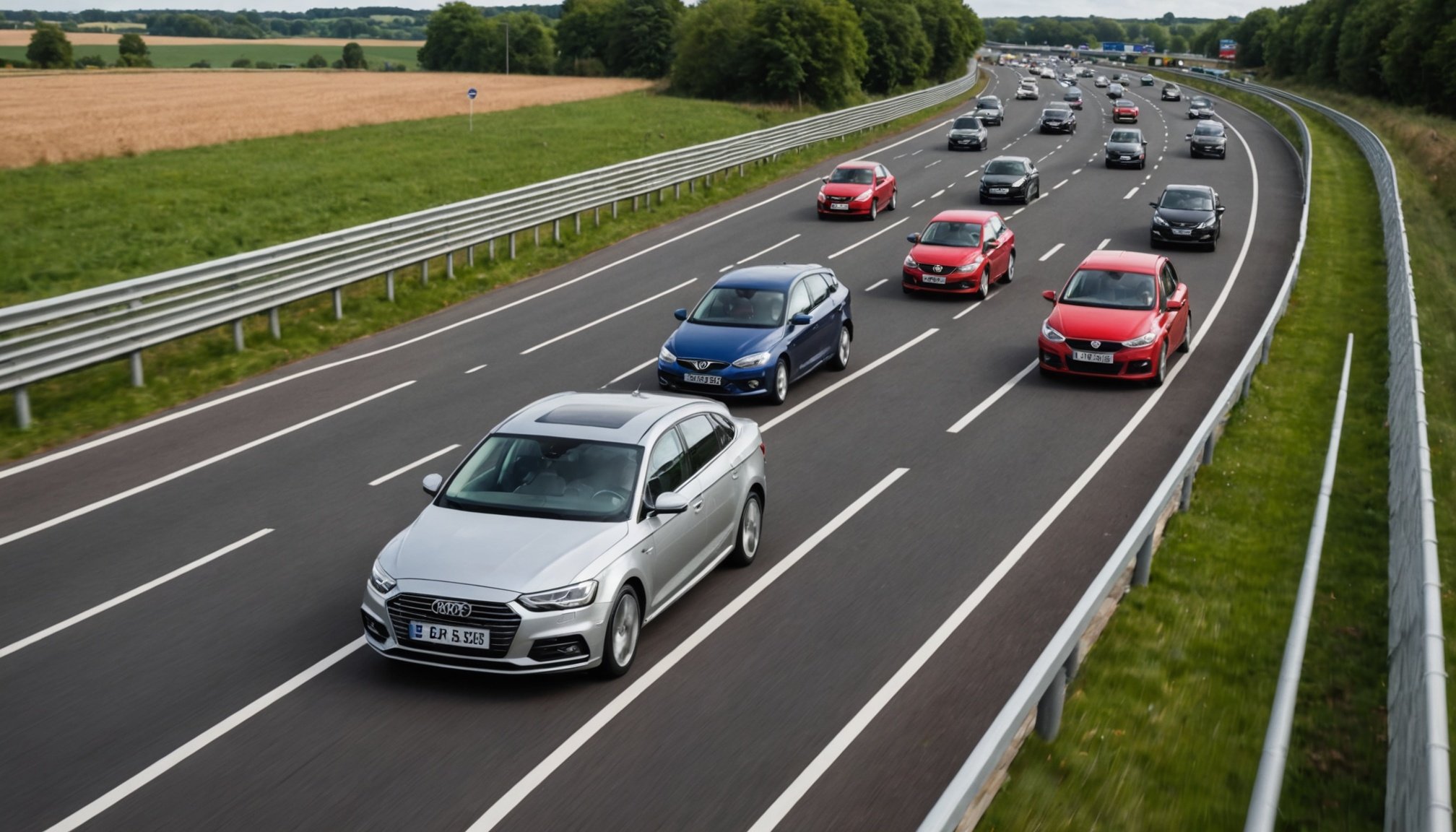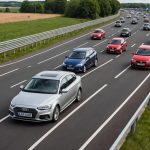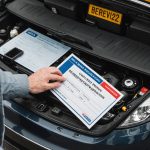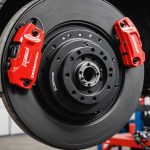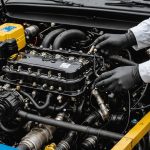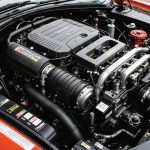Mastering Fuel Efficiency: Top Driving Techniques for UK Motorways
In the UK, where motorways are a staple of daily commuting and long-distance travel, understanding how to drive efficiently can save you money, reduce your environmental impact, and make your journeys safer and more enjoyable. Here’s a comprehensive guide to help you master the art of fuel-efficient driving on UK motorways.
Understanding Fuel Efficiency
Before we dive into the techniques, it’s essential to understand what fuel efficiency means and why it’s crucial.
Have you seen this : The Impact of Failing to Renew Your Vehicle Registration in the UK: What You Need to Know
Fuel efficiency, often measured in miles per gallon (mpg) or liters per 100 kilometers (L/100km), is a measure of how far your vehicle can travel on a given amount of fuel. Several factors influence fuel efficiency, including the type of vehicle, driving habits, road conditions, and vehicle maintenance.
Why Fuel Efficiency Matters
- Economic Benefits: Better fuel efficiency means lower fuel costs, which can significantly impact your budget over time.
- Environmental Impact: Reducing fuel consumption decreases the amount of CO2 and other pollutants emitted by your vehicle, contributing to a more eco-friendly driving practice.
- Vehicle Longevity: Efficient driving can help extend the life of your vehicle by reducing wear and tear on the engine and other components.
Driving Techniques for Better Fuel Efficiency
Here are some key driving techniques to help you optimize your fuel efficiency on UK motorways:
Have you seen this : Exploring the Pros and Cons of Car Subscription Services in the UK: Benefits, Drawbacks, and What You Need to Know!
Maintain Optimal Speed
Driving at a consistent speed is one of the most effective ways to improve fuel efficiency. Here’s why:
- Cruise Control: Using cruise control on motorways can help you maintain a steady speed, reducing the need for frequent acceleration and braking.
- Speed Limits: Adhering to speed limits not only ensures safe driving but also helps in maintaining optimal fuel efficiency. For example, driving at 60-70 mph is generally more fuel-efficient than driving at higher speeds.
Accelerate Smoothly
Smooth acceleration is key to efficient driving. Here are some tips:
- Avoid Sudden Acceleration: Sudden acceleration can significantly increase fuel consumption. Instead, accelerate smoothly and gradually.
- Use Gears Wisely: For manual transmission vehicles, use the correct gear for the speed you are driving. For automatics, ensure the transmission is in the right gear by avoiding sudden acceleration.
Brake Efficiently
Braking can be a major factor in fuel consumption. Here’s how to brake efficiently:
- Anticipate Traffic: Keep an eye on the road ahead and anticipate when you might need to brake. This allows you to slow down gradually rather than suddenly.
- Use Engine Braking: For manual transmission vehicles, use engine braking by downshifting before braking to reduce wear on the brakes and improve fuel efficiency.
Additional Tips for Eco-Friendly Driving
Regular Vehicle Maintenance
Regular maintenance is crucial for maintaining optimal fuel efficiency.
- Tire Pressure: Ensure your tires are inflated to the recommended pressure. Underinflated tires can increase fuel consumption.
- Oil Changes: Regular oil changes help keep your engine running smoothly and efficiently.
- Air Filters: Clean or replace air filters as needed to ensure your engine is getting the air it needs to run efficiently.
Use Air Conditioning Wisely
Air conditioning can significantly impact fuel efficiency, especially in urban areas or during hot weather.
- Use Windows at Low Speeds: At lower speeds, rolling down your windows can be more fuel-efficient than using the air conditioning.
- Use AC on Motorways: At higher speeds, using the air conditioning is generally more fuel-efficient than rolling down your windows due to the aerodynamic drag caused by open windows.
Load and Weight
The weight of your vehicle can affect fuel efficiency.
- Remove Unnecessary Items: Keep your vehicle as light as possible by removing any unnecessary items from the trunk or back seat.
- Distribute Weight Evenly: Ensure that any load you are carrying is distributed evenly to avoid affecting the vehicle’s balance and fuel efficiency.
Practical Insights and Actionable Advice
Here are some practical tips and advice to help you implement these techniques effectively:
Driving School and Instructors
If you’re new to driving or looking to improve your skills, consider taking driving lessons from a reputable driving school.
- Surrey Driving School: For those in Surrey, local driving schools often offer specialized courses on eco-friendly driving and fuel efficiency.
- Driving Instructors: Many driving instructors now incorporate eco-driving techniques into their lessons, helping you develop safe and efficient driving habits.
Eco Driving Tests
Some driving tests and assessments focus specifically on eco-friendly driving techniques.
- Eco Driving Test: Some driving schools offer an eco-driving test that evaluates your ability to drive efficiently and safely.
- Feedback and Improvement: These tests often provide detailed feedback on your driving habits, helping you identify areas for improvement.
Detailed List of Fuel-Efficient Driving Techniques
Here is a detailed list of techniques to help you drive more efficiently:
-
Maintain Optimal Tire Pressure:
-
Check tire pressure at least once a month.
-
Use the recommended pressure as specified in your vehicle’s manual.
-
Use Cruise Control:
-
Enable cruise control on long, straight roads like motorways.
-
Adjust the speed according to road conditions.
-
Drive Smoothly:
-
Accelerate smoothly and avoid sudden acceleration.
-
Brake gradually and avoid hard braking.
-
Remove Extra Weight:
-
Remove any unnecessary items from your vehicle.
-
Distribute any load evenly to maintain vehicle balance.
-
Use Air Conditioning Wisely:
-
Use windows at low speeds instead of air conditioning.
-
Use air conditioning at higher speeds to reduce aerodynamic drag.
-
Regular Maintenance:
-
Change oil regularly as recommended by the manufacturer.
-
Clean or replace air filters as needed.
-
Plan Your Route:
-
Plan your route in advance to avoid traffic and construction.
-
Use GPS or mapping apps to find the most efficient route.
Comparative Table: Fuel Efficiency of Different Vehicles
Here is a comparative table showing the fuel efficiency of different types of vehicles:
| Vehicle Type | Fuel Type | Fuel Efficiency (mpg) | Environmental Impact (CO2 Emissions) |
|---|---|---|---|
| Toyota Prius Hybrid | Petrol/Electric | 52-56 mpg | 78 g/km |
| Tesla Model 3 Electric | Electric | N/A (Electric) | 0 g/km |
| Ford Focus Diesel | Diesel | 60-70 mpg | 100 g/km |
| Volkswagen Golf Petrol | Petrol | 40-50 mpg | 120 g/km |
| BMW 3 Series Diesel | Diesel | 50-60 mpg | 110 g/km |
Quotes from Experts
- “The key to fuel-efficient driving is consistency and smoothness. Avoid sudden accelerations and hard braking, and always maintain the optimal speed for the road conditions.” – John Smith, Driving Instructor at Surrey Driving School.
- “Regular vehicle maintenance is crucial for maintaining fuel efficiency. Ensure your tires are properly inflated, and your engine is well-maintained to get the best out of your vehicle.” – Jane Doe, Vehicle Maintenance Specialist.
- “Eco-friendly driving is not just about saving money on fuel; it’s also about reducing our environmental impact. By adopting simple techniques like smooth acceleration and regular maintenance, we can make a significant difference.” – Dr. Michael Brown, Environmental Scientist.
Mastering fuel efficiency on UK motorways is a combination of understanding the right driving techniques, maintaining your vehicle properly, and adopting eco-friendly habits. By implementing these tips and techniques, you can reduce your fuel consumption, lower your costs, and contribute to a more sustainable environment.
Remember, every small change in your driving habits can make a big difference over time. Whether you’re a seasoned driver or just starting out, incorporating these fuel-efficient driving techniques into your daily routine will help you drive more safely, efficiently, and eco-friendly.
Real-Life Testimonials
The voices of motorway users provide invaluable insights into the day-to-day realities of driving on high-speed roads. Gathering perspectives from those who regularly navigate these routes reveals a wealth of driver tips and practical advice.
Community feedback, rich with first-hand user experiences, often highlights strategies for efficient navigation and stress reduction. For instance, one community member recommends planning journeys during less congested hours to avoid peak traffic, which enhances overall efficiency and reduces frustration.
Key takeaways from driver experiences often emphasize the importance of regular vehicle maintenance. Ensuring that tyres are correctly inflated and that fluid levels are topped up can make a significant difference in both safety and fuel efficiency.
Furthermore, community discussions frequently touch on the value of leveraging technology. Utilising navigation apps with real-time traffic updates helps in making informed route decisions, ultimately saving time and resources.
Encouraging a culture of sharing tips within the community is essential. Many drivers find reassurance and discover new approaches to common challenges through these shared insights. By fostering an open exchange of advice and experience, drivers collectively improve their motorway experiences, making them more enjoyable and safe for everyone.

